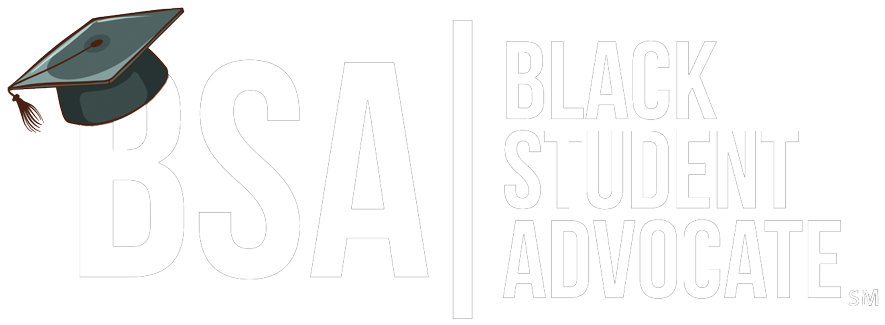The conversation around education often focuses on grades, standardized tests, and college readiness. But beneath these academic priorities lies a critical factor that shapes every student’s performance, behavior, and long-term success—mental health. The effects of mental health on students are profound, influencing everything from concentration and attendance to self-esteem, emotional regulation, and motivation.
With rising cases of anxiety, depression, academic pressure, bullying, social isolation, and trauma, students today face challenges unlike any generation before them. Schools are no longer just academic institutions—they are a lifeline for emotional, social, and psychological support.
This is precisely where organizations like The Black Student Advocate Network step in. Students—especially Black students and other underrepresented groups—often experience unique mental health barriers rooted in systemic inequities, cultural misunderstandings, and stigmatization. Empowering schools to address these issues is not a luxury; it’s a necessity.
This comprehensive guide explores why mental health on students matters, the real impact poor mental health can have on academic and personal development, and—most importantly—what schools can do to create emotionally safe and supportive learning environments.
Outline 1: The Growing Importance of Mental Health on Students
Mental health has become a major topic in educational discussions because today’s students are experiencing:
Higher levels of stress
Academic pressure, competitive environments, extracurricular overload, and societal expectations can overwhelm students. Stress has become normalized, even glorified, but its long-term repercussions—burnout, disengagement, and emotional exhaustion—cannot be ignored.
Increased exposure to trauma
Students may face trauma from community violence, family instability, financial stress, or social discrimination. Trauma—whether acute or long-term—can disrupt brain development, emotional regulation, and cognitive functioning.
The impact of technology and social media
Social media has changed the way students interact and perceive themselves. While it offers connection, it can also cause:
- comparison anxiety
- cyberbullying
- body image issues
- constant pressure to perform socially
Cultural and systemic challenges
For Black students, mental health experiences often include additional layers:
- racial trauma
- discrimination
- bias within school systems
- underrepresentation in mental health resources
- stigma around seeking help
Organizations like The Black Student Advocate Network highlight that understanding these systemic factors is essential to adequately supporting students’ mental well-being.
Outline 2: How Mental Health Impacts Academic Performance
Mental health on students directly affects the way they think, learn, and participate in school. Some of the most common impacts include:
Difficulty Concentrating or Staying Focused
Anxiety and depression can impair cognitive functions, making tasks like reading, problem-solving, and recall more challenging.
Increased Absenteeism
Students struggling mentally may avoid school due to social anxiety, emotional exhaustion, fear of bullying, or lack of motivation.
Lower Academic Achievement
When emotional challenges go untreated, grades often decline. Students may stop participating, turning in assignments, or preparing for tests.
Withdrawal from Class Participation
Students experiencing mental distress may avoid raising their hands, joining group work, or speaking in class.
Higher Dropout Rates
Long-term mental health issues—especially when unrecognized—can push students away from the education system entirely.
Behavior Changes
Mental health challenges sometimes present as:
- irritability
- aggression
- disruptive behavior
- defiance
Too often, these behaviors lead to punishment rather than support—especially for Black students, who are disproportionately disciplined in schools. The Black Student Advocate Network stresses the need for interpretation before discipline: challenging behavior is often communication of an emotional need.
Outline 3: The Social & Emotional Impact of Mental Health on Students
Beyond academics, mental health influences students’ daily interactions, relationships, and overall sense of self.
Low Self-Esteem & Self-Worth
Students who struggle with mental health may internalize negative beliefs about themselves, thinking they are not “good enough” academically or socially.
Social Withdrawal or Isolation
Students may distance themselves from friends, group activities, or school events, increasing feelings of loneliness.
Increased Risk of Bullying
Students dealing with emotional challenges may be more vulnerable to bullying or, conversely, may engage in bullying themselves due to internal emotional conflict.
Difficulty Managing Emotions
Untreated mental health issues can result in:
- mood swings
- emotional outbursts
- sudden shutdowns
- frustration
Threat to Long-Term Well-Being
Students who do not learn healthy coping mechanisms early may carry these struggles into adulthood.
The Black Student Advocate Network emphasizes that social-emotional learning (SEL) and culturally relevant counseling are powerful tools for building confidence, resilience, and emotional intelligence among students.
Outline 4: Common Mental Health Challenges Students Face Today
Anxiety Disorders
Whether due to academic pressure, social situations, or personal stress, anxiety is one of the most common mental health challenges among students.
Depression
Persistent sadness, lack of motivation, hopelessness, and fatigue can severely affect a student’s daily functioning.
Trauma & PTSD
Exposure to violence, loss, instability, or racial trauma can significantly impact concentration, emotional stability, and behavior.
ADHD & Attention Disorders
These can interfere with organization, memory, and task initiation—often misunderstood as laziness or defiance.
Eating Disorders
Body image insecurity, peer pressure, and social media comparisons contribute to rising cases of anorexia, bulimia, and binge eating.
Substance Use
Students may turn to substances as a coping mechanism for untreated mental health challenges.
Suicidal Thoughts or Self-Harm
One of the most alarming outcomes of untreated mental health issues is self-harm or suicidal ideation.
Because Black students often experience stigmatization or lack of resources, The Black Student Advocate Network advocates for mental health literacy, accessible counseling, and culturally responsive interventions to prevent crises before they escalate.
Outline 5: How The Black Student Advocate Network Helps Schools Support Students’ Mental Health
Your organization plays a crucial role in addressing mental health on students—particularly Black students who often face unique challenges.
Advocacy for Equity in School Systems
You work to eliminate systemic barriers such as discriminatory discipline practices, racial bias, and unequal access to mental health services.
Training & Workshops for Educators
Schools gain access to:
- cultural competency training
- trauma-informed teaching strategies
- mental health awareness workshops
- restorative justice practices
These empower educators to understand and support students emotionally and academically.
Mentorship & Student Support Programs
You help schools implement:
- peer mentoring
- leadership programs
- empowerment sessions
- wellness initiatives
Students gain confidence, social skills, and emotional resilience.
Early Intervention & Crisis Prevention
Your organization helps educators identify early warning signs before they escalate into crises. This proactive approach ensures timely support.
Community Partnerships
You build bridges between schools, families, community leaders, and mental health professionals to create a holistic support network.
Promoting Culturally Responsive Counseling
Black students often feel misunderstood in traditional counseling environments. You emphasize:
- cultural validation
- inclusive language
- acknowledgment of racial trauma
- representation in school mental health teams
By blending cultural understanding with mental health resources, The Black Student Advocate Network helps schools truly meet the emotional needs of all students.
Conclusion
The impact of mental health on students is undeniable. It shapes their academic achievement, their social connections, their emotional resilience, and their long-term success. In today’s world—filled with constant pressure, societal expectations, and increasing exposure to trauma—students need more than textbooks and classrooms. They need schools that understand their emotional worlds and advocate for their well-being.
This is why mental health support can no longer be optional. It must be embedded into the fabric of school culture, teaching practices, and community partnerships.
Organizations like The Black Student Advocate Network play a transformative role in this movement. By providing advocacy, training, mentorship, and culturally responsive support, your organization empowers schools to not only educate students—but to uplift, heal, and strengthen them.
When schools prioritize mental health, students don’t just survive—they thrive. They develop confidence, emotional intelligence, and a sense of belonging. They learn to overcome challenges and envision a future filled with opportunity.







Share This Page